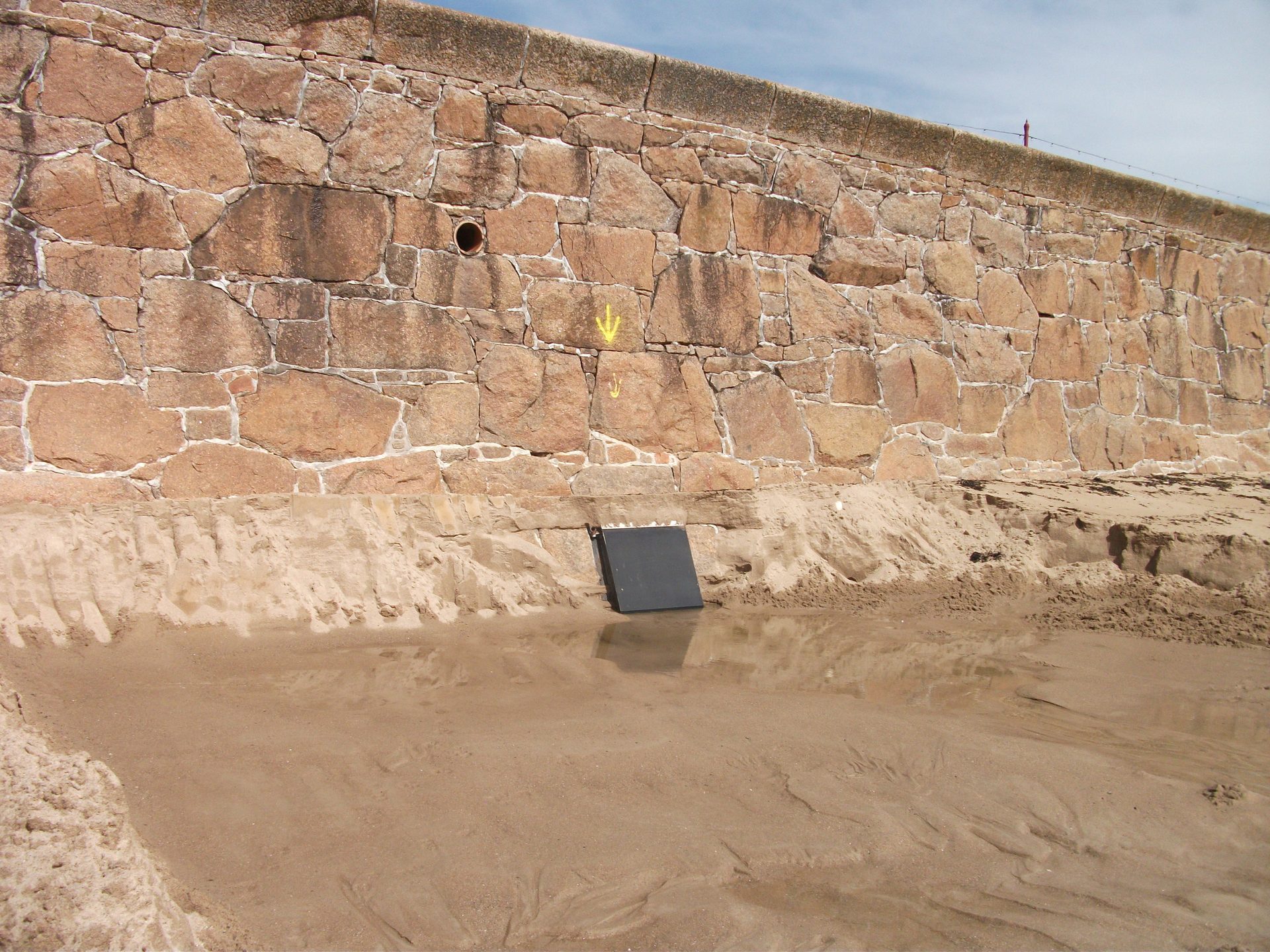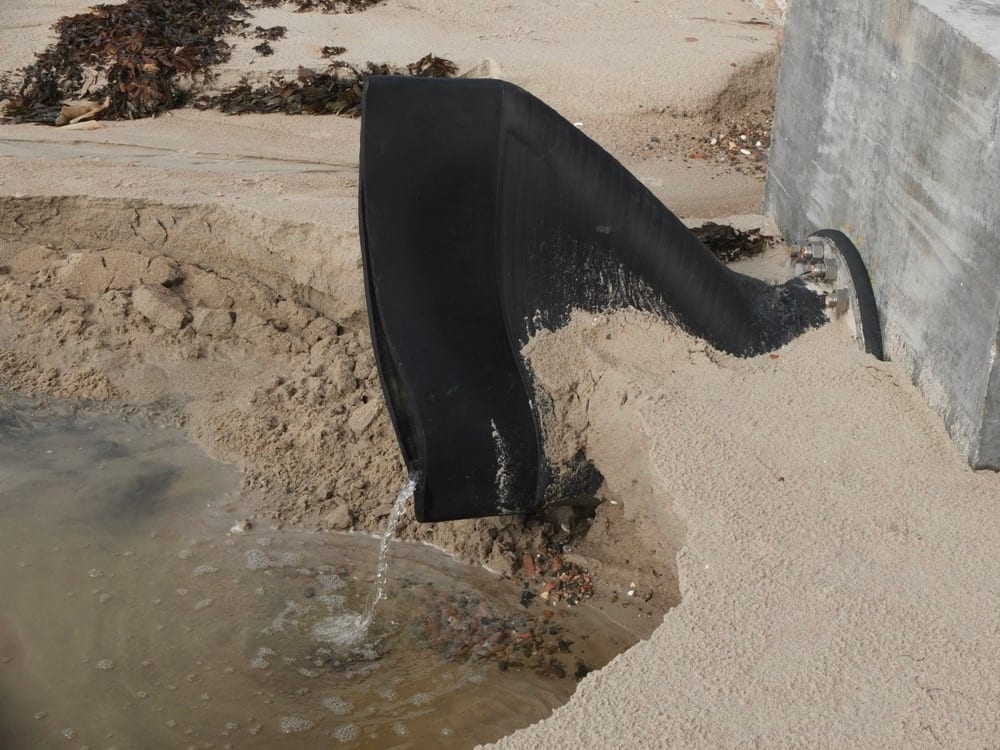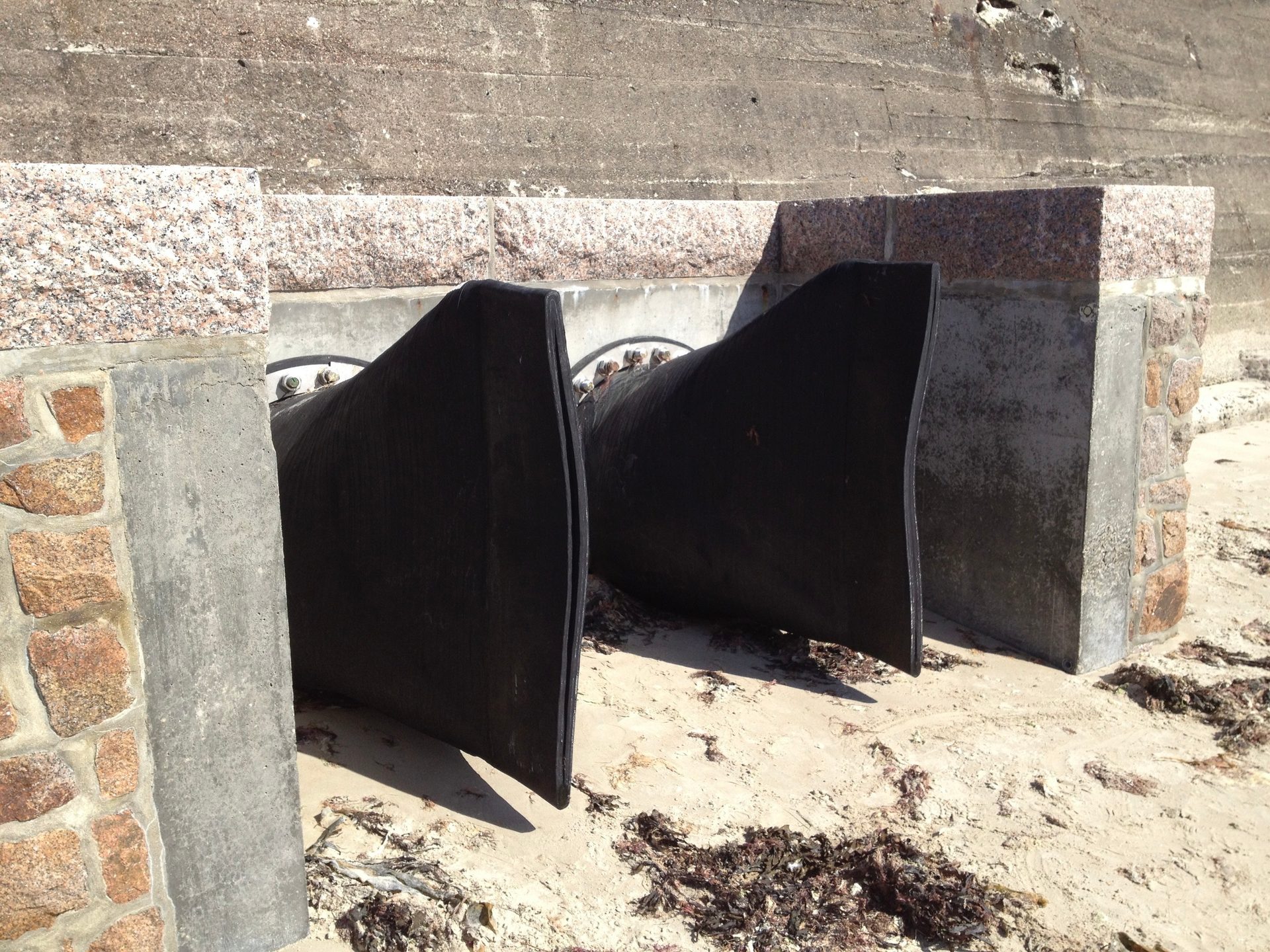Gloucester Street Surface Water Outfall States of Jersey.
1600mm Rubber Duckbill Check Valve replacing Ineffective High Maintenance Flap.
States of Jersey was having a number of issues at this outfall:
- Sand jamming flap shut causing drainage system to backup.
- Sand jamming flap open resulting in seawater infiltration & surcharging of the network.
- High maintenance cost, outfall had to be periodically excavated to clear the flap to allow drainage through the culvert.
- High cracking pressure associated with the flap in submerged conditions.
We were able to provide a Measurit solution to meet all the clients criteria, the existing flap was removed and a DN1600 flanged rubber duckbill valve was bolted directly to the existing structure.
The duckbill valve can operate in areas prone to sand/silt build up, its passive performance allows the valve to drain by gravity, it self clears just by the water flowing through it, making this a self clearing, self maintaining check valve solution.
Duckbill valves operates on differential pressure so can discharge flow even when submerged under water, with very low headloss, critical for this outfall draining the network in the St Helier area on Jersey Island.
High Maintenance.
The outfall at Gloucester Street needed frequent maintenance to clear sand and silt build up from in front of the flap valve.
This required a track machine to enter the beach via a nearby slip way and digging a channel, to elleviate water buildup in the upstream system to escape, adjacent to the popular tidal access road to Elizabeth Castle site. This was resulting in very high maintenance costs and also due to the media being removed this could be classed as dredging, needing license permitting when removing large quantities for disposing from the beach, only adding to the increasing costs of operation.
Ineffective Flap
Visible scars of previous repairs and mark showing the level of sand & silt build up that needs to be removed.
Some different methods had been tried here:
Steel flaps were also proving troublesome; corrosion in seawater, jamming open with debris, jamming shut with high levels of sand and high cracking pressure associated with the flap in submerged conditions resulting in water backing upstream.
Rubber flap seen here was tried giving lower cracking pressure, but could be liable to invert with backpressure so a series of vertical support bars where added behind the flap to stop it inverting under backpressure, but also resulted in same issues with material jamming the flap. With frequent digging out the rubber flap was liable to damage from the excavator.
MeasurIT were contacted and we visited to provide a solution to overcome the clients issues. Following our design proposal a rubber duckbill valve was chosen to offer a self clearing solution while offering backflow prevention and minimal headloss.
Digging sand and silt away from old flap, pre install.
Old flap removed.
Drilling StSt chemical anchors.
1600mm Duckbill valve ready for Install.
Duckbill valve fitted during low tide.
Positioning over square culvert.
Lifted onto anchor bolts.
Fitting Completed in tidal window!
Discharging flow while submerged.
Due to the success of this installation performance, Measurit has supplied inline and duckbill valves to other areas on the island.
Removed High Maintenance Flap (Left). Tideflex valve discharging flow while submerged, self clearing buried in sand (Right)
Related cases
We're your trusted experts!
We have decades of extensive experience with rubber check valve application in demanding Atlantic coastal sites.
Get design, CAD drawings, specification, installation and troubleshooting advice.
Get in touch
IRL 01 484 7832
UK 020 3946 3242
[email protected]
Terms, Policies and Statements
©2023 MEASURIT Technologies Ltd



